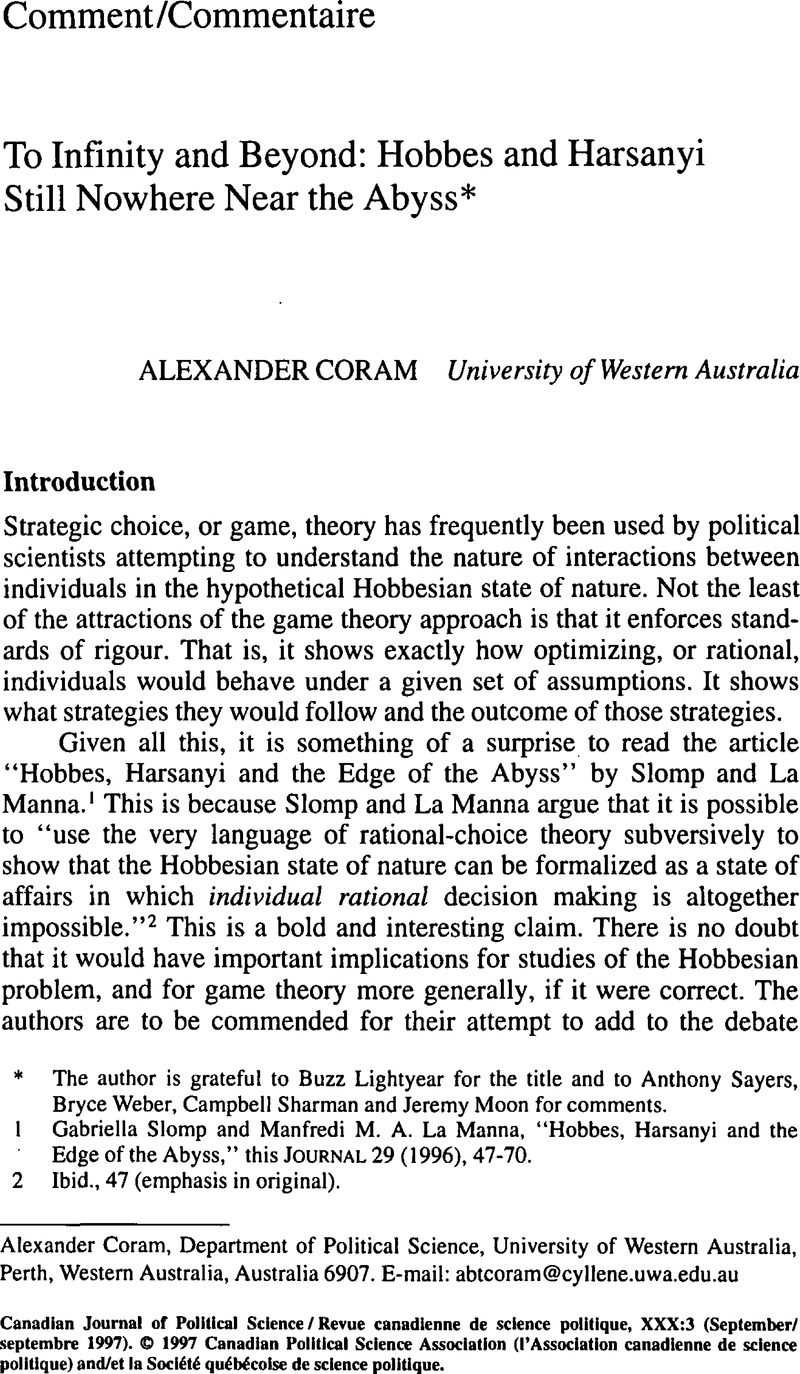No CrossRef data available.
Published online by Cambridge University Press: 10 November 2009

1 Slomp, Gabriella and Manna, Manfredi M. A. La, “Hobbes, Harsanyi and the Edge of the Abyss,” this Journal 29 (1996), 47–70.Google Scholar
2 Ibid., 47 (emphasis in original).
3 An alternative presentation of the argument would have been to use the problem in formal analysis to make a point in the history of ideas about Hobbes's misunderstanding of infinity. This would have to be presented as such with the appropriate evidence.
4 Slomp and La Manna, “Hobbes, Harsanyi and the Edge of the Abyss,” 64.
5 Ibid., 60. Slomp and La Manna seem to see a problem here and make an oblique reference to mountain climbing (61, n. 38). The distinction between violent death and a fatality while mountain climbing is not clear.
6 The statement that “x is infinitely bad” and that no good can outweigh x (ibid., 60, emphasis in original) are not necessarily the same. No available good?
7 Ibid., 61.
8 Ibid.
9 Refusing to betray colleagues to an enemy may result in death with p = 1. Sacrifices for payoffs in terms of honour are an interesting class of action for the analysis of political behaviour.
10 Footnote 47 makes a reference to bounded utility (ibid., 65). The equilibrium proof depends on strategy sets being closed and bounded. Bounded utility is only necessary to avoid violating this and to make mathematical sense. I think the reference should be to Friedman, J., Game Theory with Applications to Economics (Cambridge: MIT Press, 1990)Google Scholar, theorem 2.4.
11 Slomp and La Manna, “Hobbes, Harsanyi and the Edge of the Abyss,” 64.
12 Ibid., 66.